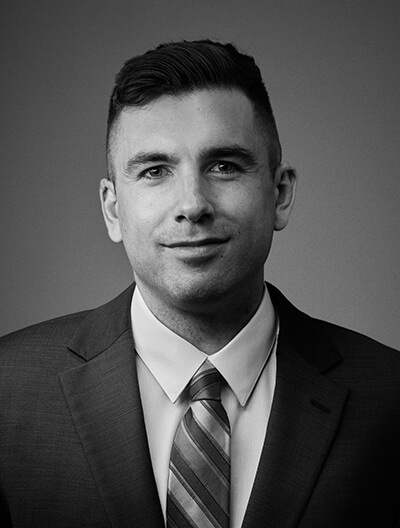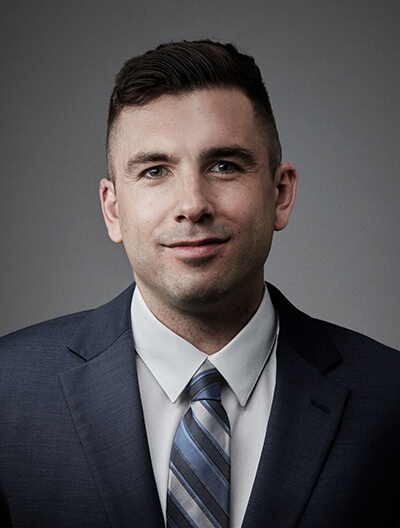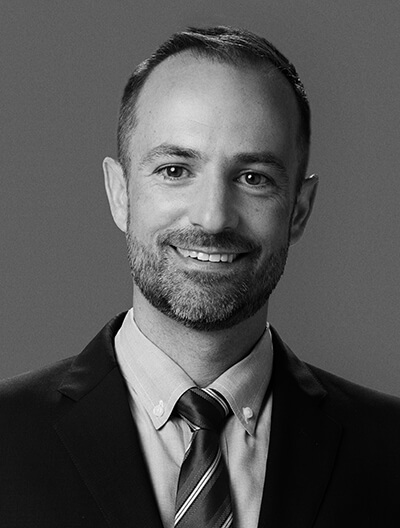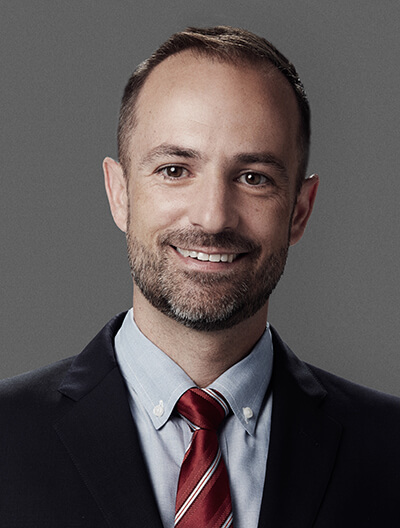Washington’s premier insurance recovery practice
GTTC advises policyholders and prosecutes claims and coverage litigation under all types of insurance. Our coverage practice ranges from large-scale litigation on behalf of international corporate policyholders to litigating bad-faith claims under personal-line coverages.
Our team is particularly experienced in the following areas:
- Long-tail insurance recovery: environmental, asbestos, sexual abuse, and other latent-injury claims
- Management liability coverage, including D&O and employment-practices coverage
- Commercial property and builder’s risk coverage
- Marine coverages
- Media liability coverage
- Cyber coverage, including “silent cyber” and emerging cyber-specific forms
- Professional liability coverage
- Workers’ compensation and employer’s liability
- Commercial crime and employee theft
- Long-term disability
- Insurance archaeology and lost-policy issues
- Insurer insolvency proceedings
- Insurer bad faith
- Homeowner’s coverage
- Broker and agent liability claims
- London-market issues
GTTC’s experience and accomplishments in the insurance-coverage arena establish us as the premier policyholder-side firm in Washington. Our lawyers represented policyholders in some of the most important insurance coverage decisions to come out of the Washington courts. These and other decisions place Washington among the most policyholder-favorable jurisdictions in the country.
Representative Matters
Long-tail coverage counsel to various companies involved in environmental contamination litigation
Counsel to various companies to secure coverage for environmental property damage and asbestos liabilities resulting from business operations occurring decades ago.
Professional liability insurer pays full limits after wrongful denial
The Washington Health Care Authority instituted several proceedings against a local doctor. When the doctor tendered the claims to his professional liability carrier, the carrier denied coverage. Through several letters and discussions with the carrier, John Cadagan and Matt Pierce were able to secure full limits for the doctor’s defense.
Property insurer pays condominium owners association for the full loss plus attorneys’ fees after condominium owners are forced to file suit
John Cadagan and Frank Cordell represented a small condominium owners association against a multi-national property insurer. The insurer initially denied the claim citing faulty workmanship, and then refused to respond to letters from counsel pointing out the failures in the claims handler’s analysis. After the owners association was forced to file suit, the property insurer agreed to pay the entire claim plus all of the attorneys’ fees incurred.
Construction-defect insurance recovery in Montana
Grain silos or ‘bins’ dot the central United States agricultural areas. In eastern Montana two such bins began to subside and fail shortly after construction. They were a total loss. The bins were the cornerstone of the grain company’s expansion in eastern Montana and western North Dakota wheat country. Their failure resulted in significant business income losses. The insurer offered to pay $70,000; the client estimated its losses between $900,000 and $2.5 million. When the loss adjustment stalled, the grain company retained Dale Kingman and Greg Pendleton to pursue recovery. And so they did, resulting in a substantial confidential settlement, allowing the company to rebuild the bins and recoup its income losses.
Hurricane Wilma insurance and bad-faith recovery
In 2005 Hurricane Wilma struck Marco Island Florida as a CAT 3 hurricane. The 120 mph winds caused a rotational twisting of the Sandpiper Condominium. The Sandpiper Condominium was shaped like a butterfly with a central core and two wings of units in its 24 floors. The twisting of the ‘wings’ around the core delaminated much of the stucco envelope on one side of the core and wings and damaged the integrity of the balance of the envelope. The Sandpiper’s insurer denied coverage for a complete removal and replacement of the envelope. The Condominium owners then had to borrow $4.5million to repair the buildings damage, which only managed to cover the minimum hurricane losses. The Sandpiper retained Dale Kingman and Matt Pierce to sue the insurer for all its losses. After protracted litigation and an arbitration, the Sandpiper was awarded policy limits of almost $6.8 Million. Following the Award, Dale and Matt sued the insurer again and recovered 100% of the client’s attorney fees.
Successful coverage and bad-faith litigation in Alaska
A 2018 earthquake in Alaska severely damaged the main operational facility of the Cook Inlet Tribal Council. When the insurer failed to adjust and pay for the covered loss, CITC retained Dale Kingman to secure the wrongfully withheld insurance proceeds. With the assistance of Greg Pendleton and following a year of intense negotiation and the commencement of litigation for bad faith, CITC was finally rewarded with a recovery to compensate for its property damage and business income losses.
Recovery for eastern Washington agriculture industry
Fresh fruit is available all year and worldwide because of the invention and use of Controlled Atmosphere (“CA”) storage. Apples are kept in dormancy with an ammonia-based cooling system. Sometimes the ammonia systems in CA storage rooms fail and the apples are contaminated with ammonia beyond salvage. And just as often insurers will balk at or deny coverage. Dale Kingman and Matt Pierce lead the GTTC team in securing insurance recoveries for fruit storage and processing companies and coops throughout Washington state. Dale and Matt have recovered millions of dollars of insurance proceeds for clients who have suffered covered losses in Central and Eastern Washington.
Full recovery for owner of Seattle apartment tower
After a few short years of occupancy an apartment building in Seattle was vacated and closed because of dangerous and critical construction defects. The building failure resulted in two major lawsuits: the first against the contractors responsible for the fatal defects and the second against the building’s property insurers. Dale Kingman managed the complicated insurance issues for both lawsuits and shepherded exceptional recoveries against both the contractors and insurers. The result was the client was made whole when the apartment building was torn down.
Favorable arbitration ruling on municipality’s claim for defense coverage
Frank Cordell and Miles Bludorn prevailed at arbitration and established that the policyholder municipality was entitled to reimbursement from its governmental risk pool for defense costs that were incurred in a parallel state court proceeding. The ruling ensured that the municipality was reimbursed for all of the defense costs it incurred while the covered claims against it were pending in federal court.
Summary judgment on policyholders’ property insurance claim
Frank Cordell and Miles Bludorn won summary judgment for a policyholder in an insurance coverage lawsuit resulting from the insurer’s denial of coverage for damage to the insurer’s property. Based upon the arguments Miles presented, the court ruled as a matter of law that the insurance policy covered the costs that the policyholder incurred to repair the damaged property. The ruling led to a highly favorable settlement for Miles’s client.
Summary judgment for Snoqualmie Indian Tribe on COVID-19 insurance claim
Miles Bludorn and GTTC partner Kasey Huebner prevailed at summary judgment in an insurance coverage dispute arising from the insurer’s denial of coverage for the Tribe’s business interruption losses due to the COVID-19 pandemic. The trial court’s ruling established that the Tribe’s business interruption coverage was triggered by the governmental closure orders and that no exclusion precluded coverage. This matter was stayed pending the Washington Supreme Court’s decision in Hill and Stout PLLC v. Mut. of Enumclaw Ins. Co.
Following hard-fought litigation, settlement allows site remediation and development
Historical dry-cleaning operations led to groundwater contamination at the site of American Linen Supply Co.’s former industrial laundry and dry-cleaning plant in Seattle – a site that occupies a full city block in the heart of the South Lake Union district. In environmental coverage litigation involving this site, Frank Cordell, Matthew Pierce and Jeff Tilden represented American Linen and Frontier Redevelopment, a Denver-based brownfield redevelopment firm. On the eve of trial, and after more than two years of hard-fought litigation against its insurers, American Linen reached confidential settlements that will allow it to remediate and redevelop the site.
Insurer balks at cost of defending Port of Bellingham
An insurer for the Port of Bellingham claimed it had no duty to defend the Port in a wrongful death action arising from a serious fire at a marina owned by the Port. Susannah Carr represented the Port against the insurer. On summary judgment, the U.S. District Court ruled that the insurance company was obligated to pay for the Port’s defense in this significant wrongful death case.
Precedent-setting environmental insurance recovery case
Gull Industries, a longtime Seattle-based gasoline distributor, faced environmental clean-up obligations for 220 gas stations. When Gull sought to recover the cost of these clean-ups, which it undertook voluntarily, from various insurers under its CGL policies, the insurers denied the claims. Frank Cordell and Susannah Carr (along with co-counsel at Marten Law) engaged in a multi-phase case to recover the insurance proceeds. In the first trial, a King County Superior Court jury returned a verdict in favor of Gull. Issues in this ongoing “master class” environmental case include the effect of non-cumulation clauses, reconstruction of lost policies from years ago based on fragmentary evidence, and prevailing against the insurers’ “expected or intended” policy language defense.
Defending an investment advisor in “bet the company” bad faith case
An investment advisor was sued for misrepresentation and violation of the securities act. When the investment advisor turned to its insurer to cover the cost of defending against these claims, the insurer denied coverage. Without coverage, the cost of defending against these claims would put this company out of business. During the trial of the underlying case, Dale Kingman successfully secured defense costs – allowing the company to defend itself. After the client prevailed in defense of the underlying claims, and following a three-week arbitration hearing, he secured a significant recovery against the insurer for bad faith and the client’s attorney fees. In addition, he secured recovery of all costs and attorney fees incurred in the bad faith action. As a result, the investment advisory business was saved.
Bad-faith litigation on behalf of a publicly-traded biopharmaceutical company
Michael Rosenberger and Frank Cordell successfully represented a publicly-traded biotech company against its former insurer. When the company’s former CFO sued the client claiming he was wrongfully terminated, the insurer refused to make an offer that could have settled the case below policy limits. The client later had to settle for an amount substantially above policy limits, which the insurer refused to pay. The insurer brought suit seeking a declaration of no coverage, and our client counterclaimed for breach of contract, bad faith and violation of the Washington Insurance Fair Conduct Act. The case settled on confidential terms on the eve of trial.
After four months of litigation, insurer accepts coverage for business interruption claim
Following severe storm damage to one of its processing facilities, a large family-owned food company sought business interruption coverage under a commercial property policy. The company’s insurer claimed that, when the property was added to the policy as an insured location, no extra premium had been paid. In fact, the business interruption coverage was part of a blanket “sublimit” which was not changed with the addition of the new location. With the assistance of Dale Kingman and Matthew Pierce, the company asserted claims against its insurer for breach of contract, declaratory relief, WAC violations, CPA violations and attorney fees. After four months of litigation in U.S. District Court for the Western District of Washington, the insurer accepted coverage and agreed to adjust the loss.
Tunnel boring machine breaks down, insurers refusing to pay
The $3.1 billion Seattle tunnel was designed to replace the downtown Alaskan Way Viaduct after it was damaged in a 2001 earthquake. The “Bertha” tunnel-boring machine sustained physical damage far beneath the surface, and a recovery shaft was drilled so that it could be repaired. A consortium of insurance companies denied coverage to Seattle Tunnel Partners’ (STP) claims under a Builder’s Risk Policy. STP, the contractor building the SR 99 Alaskan Way Viaduct Replacement Project in Seattle, is seeking coverage from its property insurers for damage to the project and the tunnel-boring machine. STP filed a lawsuit seeking recovery of policy proceeds. Along with co-counsel, GTTC lawyers Dale Kingman, Greg Pendleton, and Matt Pierce represent STP in this ongoing massive insurance recovery case. Dale represented STP in a vigorous court battle over where the insurance dispute was to be decided. Over months of litigation, they helped STP’s litigation team defeat the insurers’ numerous attempts – at both the Superior Court and appellate levels – to move the dispute to New York. The coverage litigation in King County and the Court of Appeals has resulted in a significant win for STP. The matter is now before the Washington state Supreme Court on a couple remaining issues.
Thoughtful approach to major environmental coverage claim
Frank Cordell represented aerospace giant McDonnell Douglas Corporation in its first environmental coverage litigation in the mid-1990s. He resumed that engagement in 2009, when MDC was a subsidiary of The Boeing Company. MDC had incurred substantial liability for the cleanup of numerous manufacturing sites across North America. The company’s resulting coverage claim was one of the largest ever presented to MDC’s principal insurer, Lloyd’s and the London Market. Rather than following the typical “playbook,” in rote fashion, and embarking on a second round of costly coverage litigation, Boeing and Lloyd’s reached a standstill agreement and proceeded to negotiate in a structured, orderly fashion. After five years of hard-fought negotiations, the parties reached a confidential settlement. This is one of dozens of substantial long-tail coverage matters that Frank’s clients have settled on favorable terms without bearing the enormous costs and risks of coverage litigation.







































